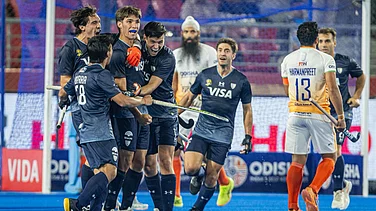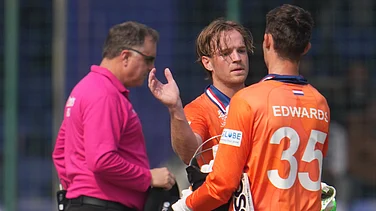IN the past one year, Sachin Tendulkar has ceased to be coy. Earlier he would hum and haw when asked if he was prepared for the captaincy. Now, his statements may be camouflaged in diplomatic niceties but the ambition is unconcealed. "I'm ready when the Board and the selectors are ready. My time will come." His time, in fact, may be already on its way.
Mohammed Azharuddin finds himself sinking in the mire of poor form and failure, and a love saga may have enthralled the nation, but has clearly distracted him from cricket. There is worse. Rebellious teammates have questioned his authority and acumen, one (Prabhakar) retiring prematurely and the other (Sidhu) sensationally deserting the team on tour.
As vice-captain, Tendulkar is the logical successor, and if there still are doubts, these have less to do with his credentials and largely with the current state of Indian cricket. Tendulkar is indisputably India's best player today. He is both inspiration and pivot. When he clicks, the team coasts; when he fails, the side gets damned to failure. It is this which sprouts the concerns. Will the pressures of the job tell on Tendulkar's batting, so critical for the side? Is he mature enough to handle a simmering, fragmented dressing room? Is it worthwhile to make him captain when the next 12 months are likely to be more intensive and arduous than at any time in the preceding two decades?
Such compunctions, however, may be misplaced. Tendulkar thrives on challenges. His outstanding record is testimony not only to his cricketing genius but also his tremendous temperament and a ruthless urge to win. While leading Bombay to victory in the Ranji Trophy in 1994-95, Tendulkar led by example and with imagination. His own quota of runs was never the issue, but the manner in which he inspired his teammates, especially the bowlers, to fulfil their potential showed a remarkable feel for the game in one so young.
He is now a year older, though his youth is surely immaterial in this context. Tendulkar has been playing international cricket for eight years, has played more matches than anybody else except Azhar. This experience is not to be measured against the fact that he is only 23. He is a sound thinker, yet not one to get bogged down by excessive theorising. He is a per-fomer, doer, and expects every player to show the same zeal and commitment. "I don't bother too much if a catch is missed, or a batsman fails if I know that the play-er has put in 110 per cent effort. But if he doesn't, he shouldn't be in the team."
Gossip from the Bombay dressing room has revealed that Tendulkar as captain, apart from baby-faced innocence, possesses a buccaneering bat, brilliant tactics, a whiplash tongue, and a heart of steel when it comes to pursuing ambition. In the India dressing room, his opinions enjoy universal respect, and on the field, he is often seen to take control when Azhar lets things meander.
Tendulkar clearly looks a leader. And Indian cricket today, without any disrespect to Azhar's efforts over the last six years, needs leadership, direction and inspiration. The feat that added pressure will affect Tendulkar's batting ignores his fierce ambition. He wants to be not only the best batsman in the world, but also the best cricketer. Which is why he will relish, rather than be perturbed by, the prospect of leading the team to South Africa and West Indies, two of the toughest tours in international cricket next season.
This might seem an exercise in selfish-ness, but the greatest players need new challenges every time to stave off boredom. The time has come to give Tendulkar the break to achieve this objective. It may also raise Indian cricket from its present despondent state.
























